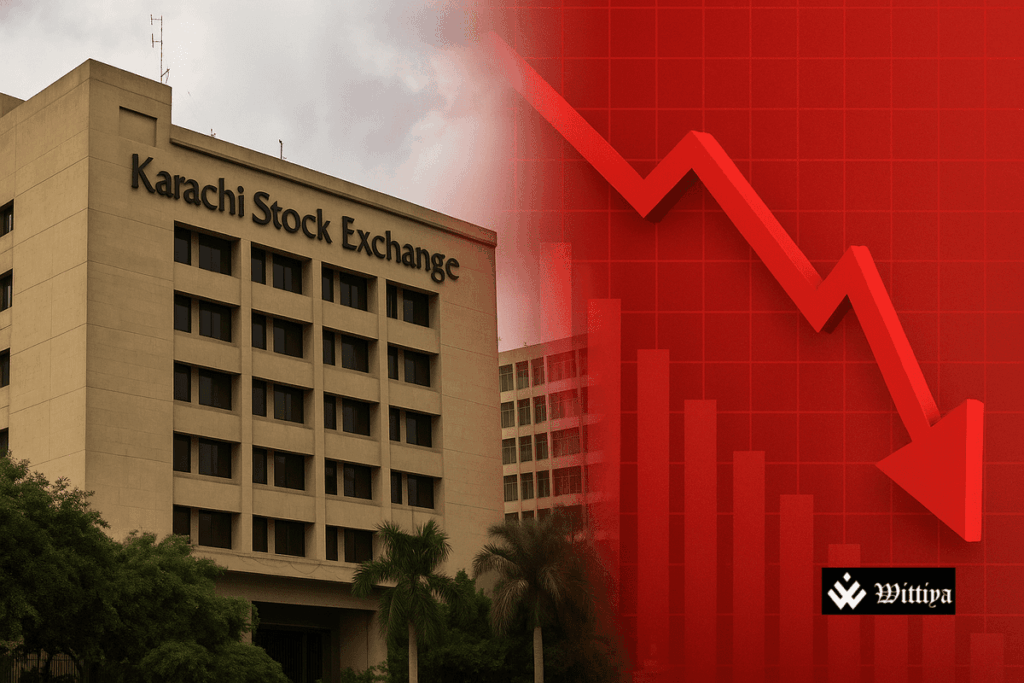On May 7, 2025, the Pakistan stock market suffered a sharp decline following India’s Operation Sindoor, which targeted terrorist hideouts in Pakistan and Pakistan-occupied Kashmir. The KSE-100 Index plunged nearly 6%, reflecting investor fears of further military escalation.
The Pakistan stock market suffered a major blow on May 7, 2025, after India launched a surprise military operation, codenamed ‘Operation Sindoor,’ targeting terrorist sites in Pakistan and Pakistan-occupied Kashmir. The Karachi Stock Exchange’s KSE-100 index dropped 6,272 points, or nearly 6%, to close at 107,296.64 from the previous day’s 113,568.51.
The military strikes were carried out by coordinated efforts from the Indian Army, Navy, and Air Force, hitting nine high-value targets associated with terrorist organizations including Jaish-e-Mohammed, Lashkar-e-Taiba, and Hizbul Mujahideen. These strikes came in retaliation to the April 22, 2025, terror attack in Pahalgam, Jammu and Kashmir.
According to the Indian government, the strikes were executed at 1:44 AM with precision munitions. Officials described the operation as “focused and non-escalatory.” Dr. VK Vijayakumar, Chief Investment Strategist at Geojit Financial Services, emphasized the strategic and limited nature of the military action.
Pakistan’s Inter-Services Public Relations (ISPR) confirmed the strikes caused casualties, including the death of a child and injuries to 12 others in Ahmedpur East. Two civilians were also reported dead in Kotli, located in Pakistan-occupied Kashmir. The Pakistan Air Force was immediately placed on high alert, with fighter jets scrambled as a precautionary measure.
Lt. Gen. Ahmed Sharif Chaudhry of ISPR strongly condemned the strikes, labeling them “cowardly acts,” and vowed a response “at a time and place of Pakistan’s choosing.” As tensions escalated, heavy artillery exchanges were reported along the Line of Control, with Indian forces responding in a “calibrated” manner.
The fallout from these events has severely shaken investor confidence in Pakistan, with widespread panic selling on the trading floors. Since the Pahalgam attack, the KSE-100 index has lost nearly 3.7%, deepening financial uncertainty in the country.
In contrast, Indian financial markets remained resilient. The BSE Sensex gained 166 points (0.21%) to reach 80,802, and the Nifty50 rose 59 points (0.24%) to 24,438. Analysts credit this to India’s stable macroeconomic fundamentals and sustained foreign investment inflows.
Over the last two weeks, foreign institutional investors have invested over ₹43,940 crore (approx. USD 5.3 billion) into Indian equities. Pankaj Singh, founder of SmartWealth.ai, noted that historical trends show Indian markets typically rebound after geopolitical tensions, citing post-Kargil and Mumbai attack recoveries.
India also conducted large-scale civil defense drills across 244 districts on the same day, which included air raid sirens and evacuation exercises—further signaling heightened readiness amid the regional crisis.
As both nations assess their next moves, the financial implications of Operation Sindoor underline the deep interlink between geopolitics and market stability. Analysts warn that continued volatility in the Pakistani market is likely if tensions remain unresolved in the days ahead.
